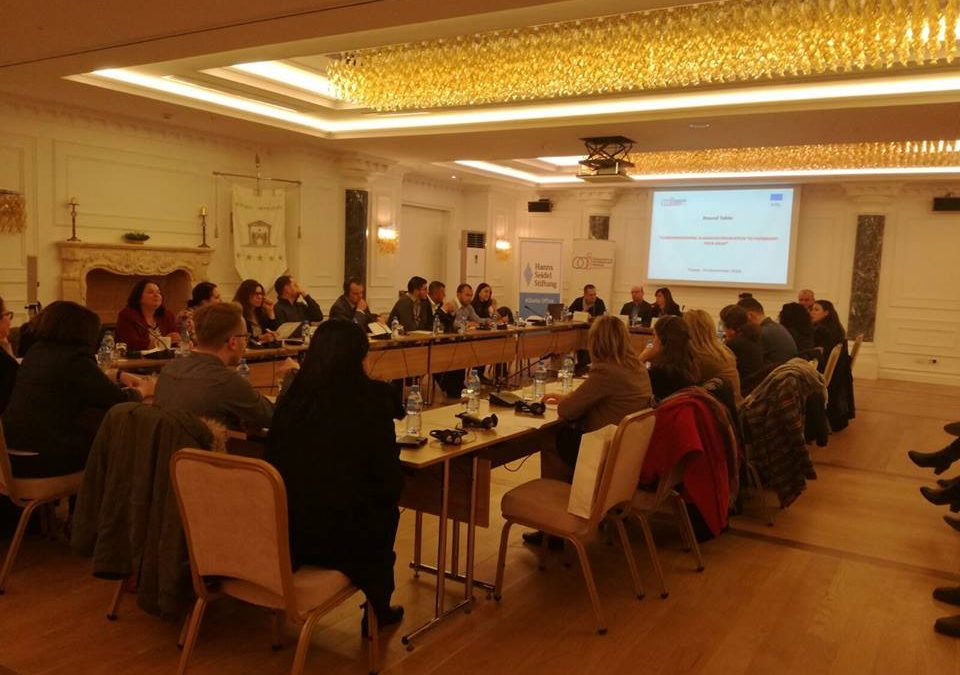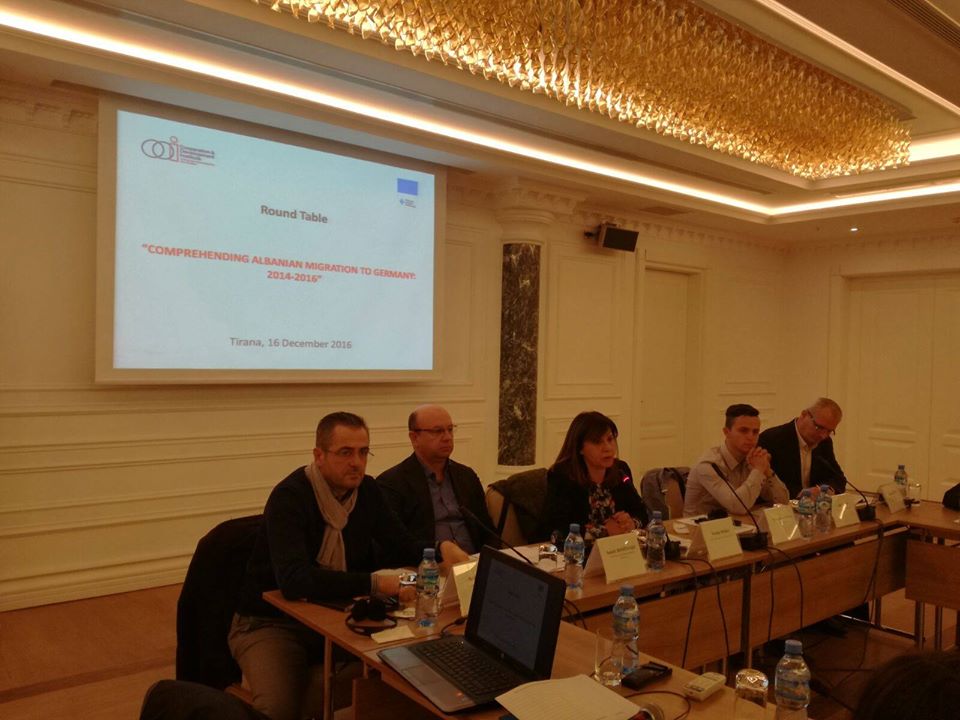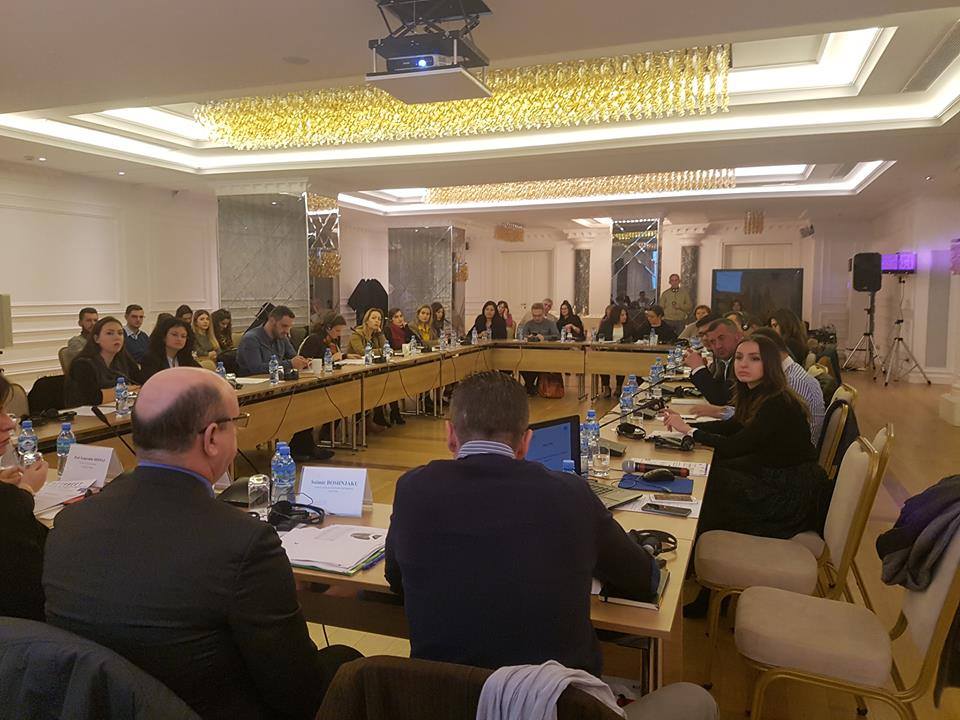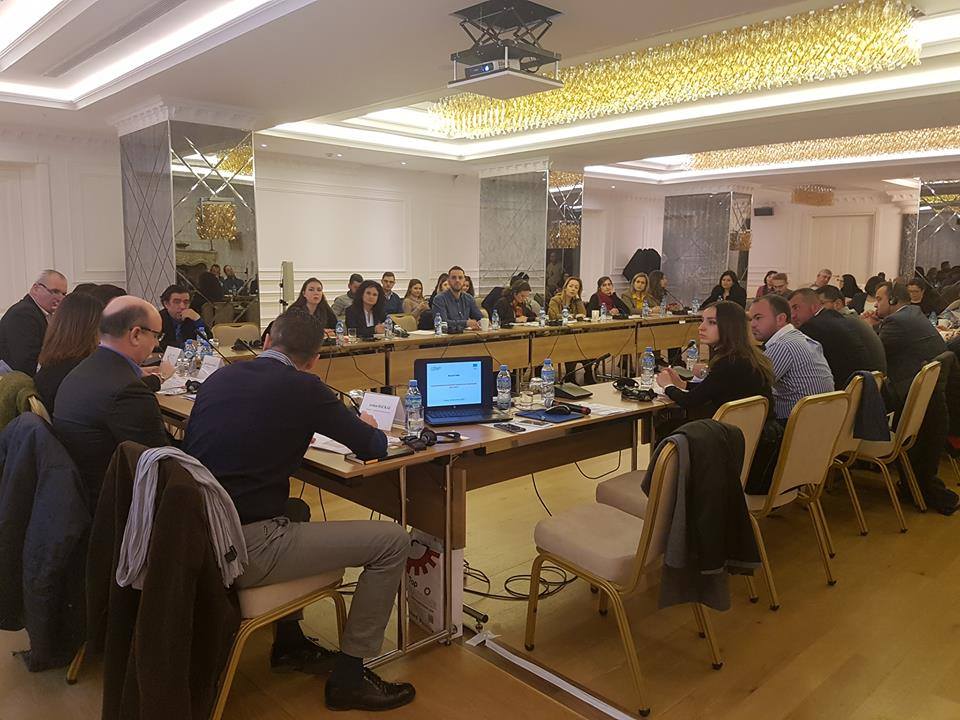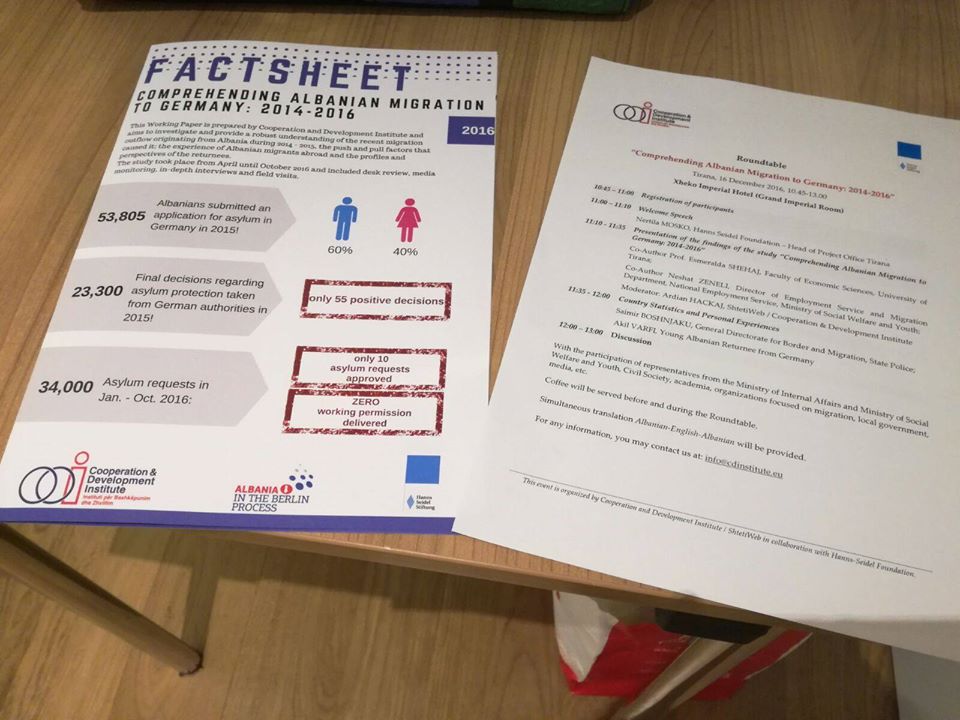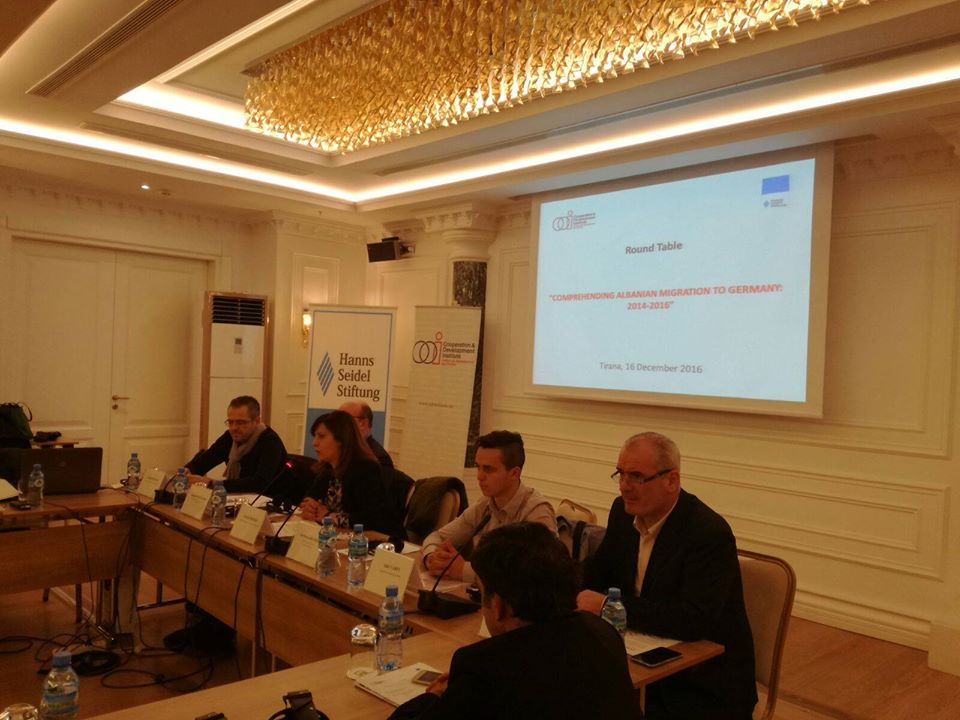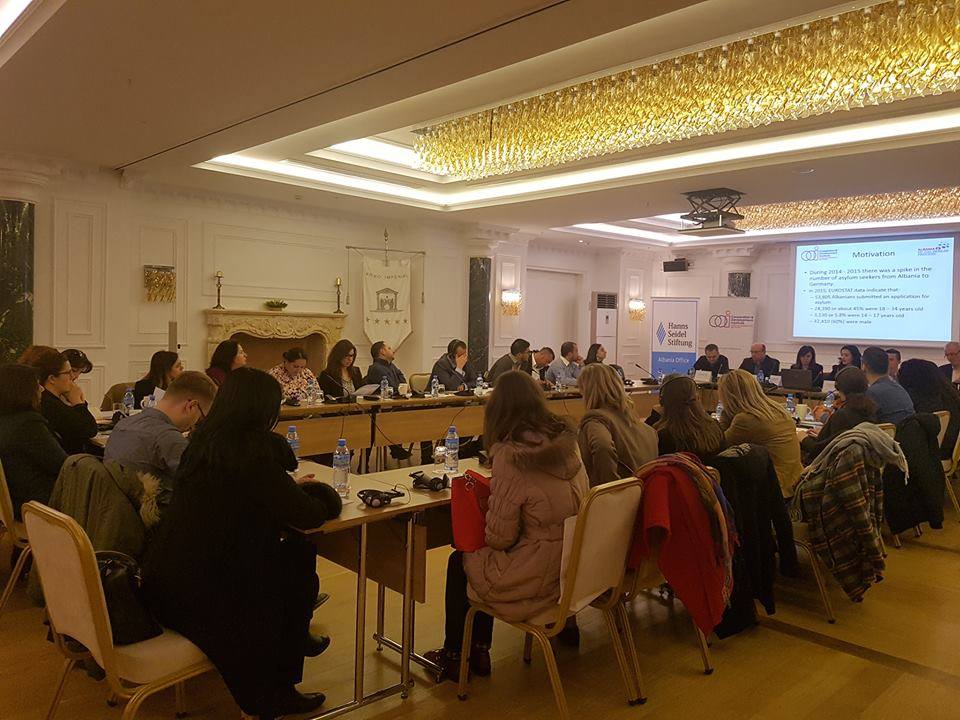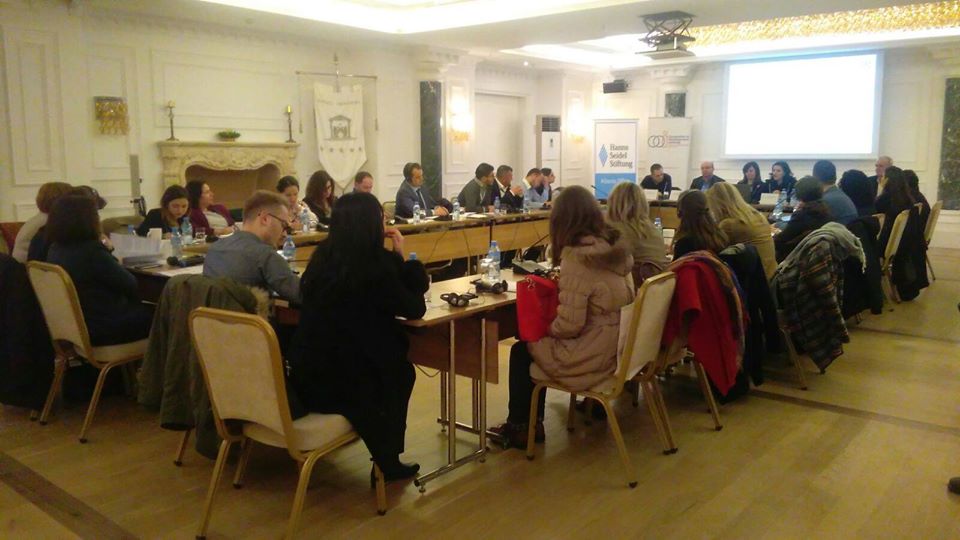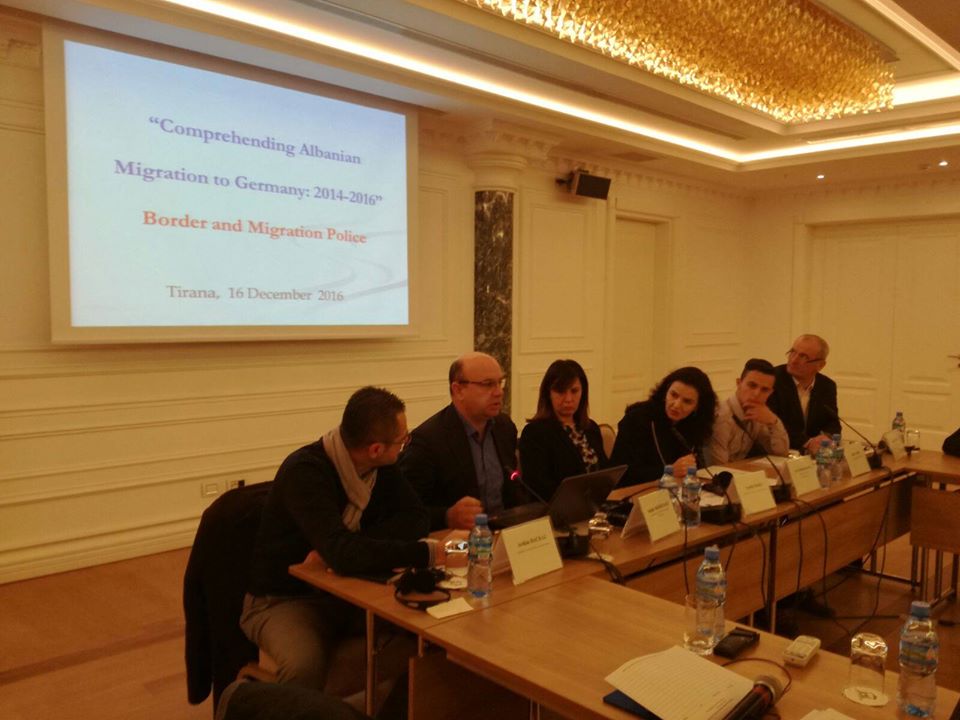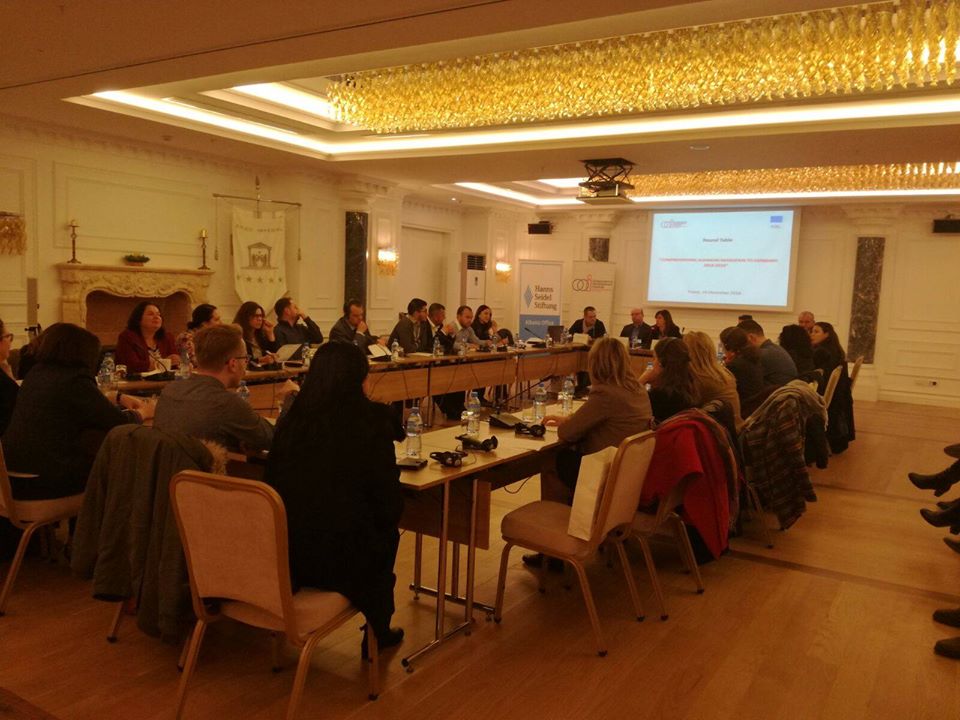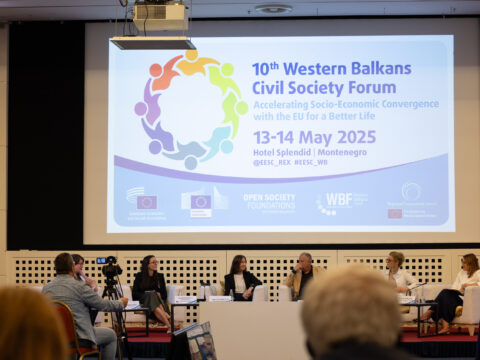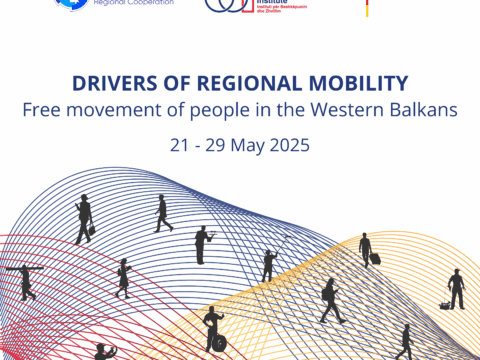16.12.2016
Cooperation and Development Institute in partnership with Hanns Seidel Foundation organized on Friday, December 16th, 2016, the round-table“Comprehending Albanian Migration to Germany: 2014-2016”.
The authors of the study with the same title presented the main findings of the research which provided an investigation to understand the recent migration outflow originating from Albania during 2014 – 2016, the push and pull factors that influenced the decision to migrate and the profiles and perspective of the returnees.
One of the co-authors of the study, Prof. Esmeralda Shehaj from the Faculty of Economic Sciences, University of Tirana, emphasized the key factors that provoked migration flows of Albanian nationals to Germany, and pointed out main data in reference to this phenomenon i.e. 53,805 Albanians submitted an application for asylum in Germany in 2015! Only 55 positive decisions out of 23,300 final decisions regarding asylum protection were taken from German authorities in 2015! Only 10 asylum requests, out of 34,000 asylum requests from Januaryto October 2016, were approved.
Mr. NeshatZeneli, also a co-author of the study, Director of Employment Service at the National Employment Service of the Ministry of Social Welfare and Youth, highlighted the necessity of spreading information to inform people on legal migration to Germany in order to avoid illegal departures. Mr. Saimir Boshnjaku from the Border and Migration General Directorate, State Police, underlined the role of Albanian State Police in the process of returned/readmitted Albanian unaccompanied minors from other countries and the measures undertaken to manage migrants’ repatriation in general. While, a young Albanian returnee, AkilVarfi, shared his experience as a former asylum-seeker in Germany and stated the main reason that pushed him at his family to leave Albania.
The research, conducted by Cooperation and Development Institute, took place from April until October 2016 and included desk review, media monitoring, in-depth interviews and field visits.
The event brought together experts from national authorities, academia, and counted on the participation of researchers, returnees, CSOs, and other interested parties.
Full analysis of the study will be published soon on CDI’s website www.cdinstitute.eu and on www.shtetiweb.org
A Factsheet of the main findings can be accessed and read here.



